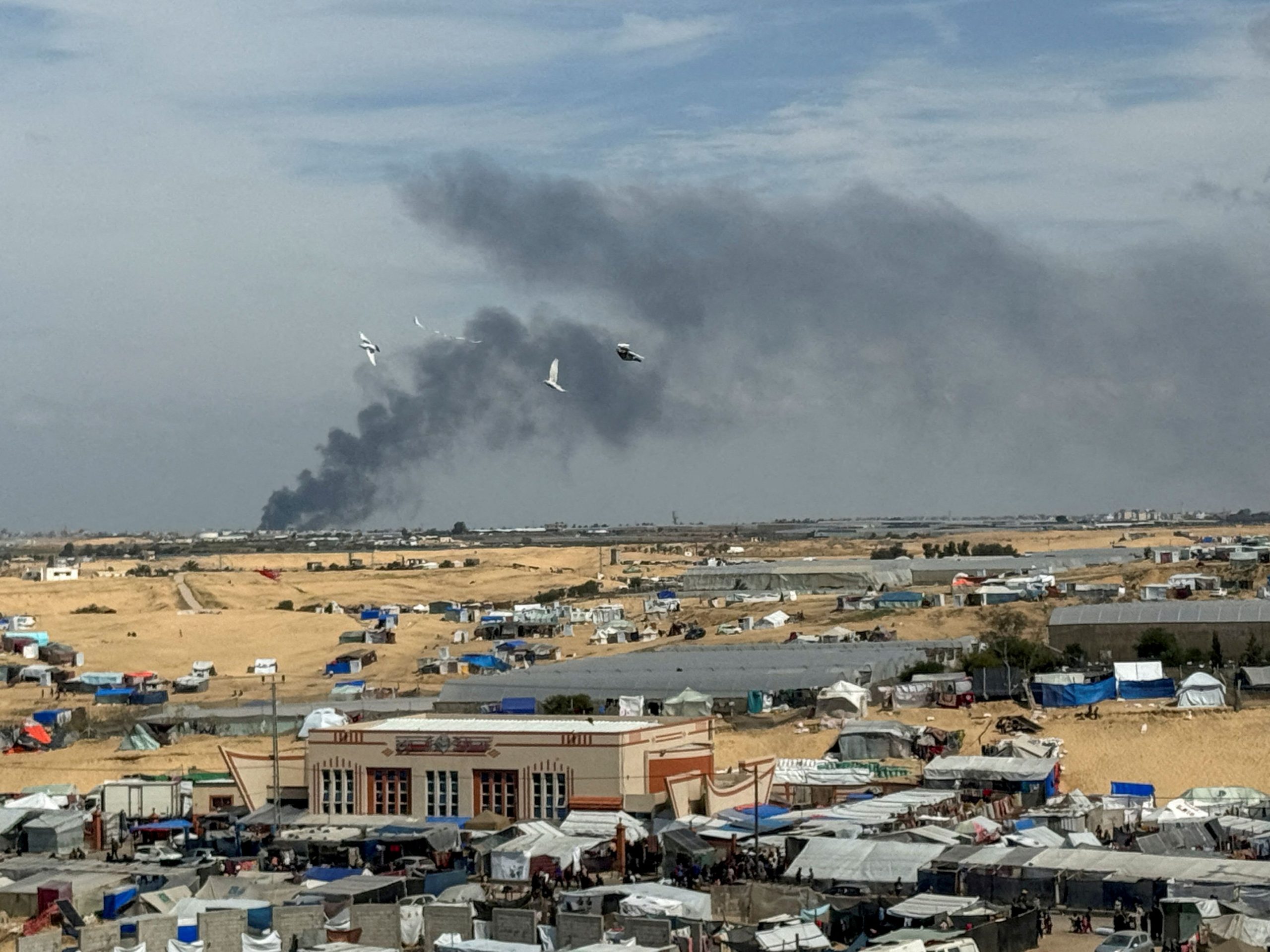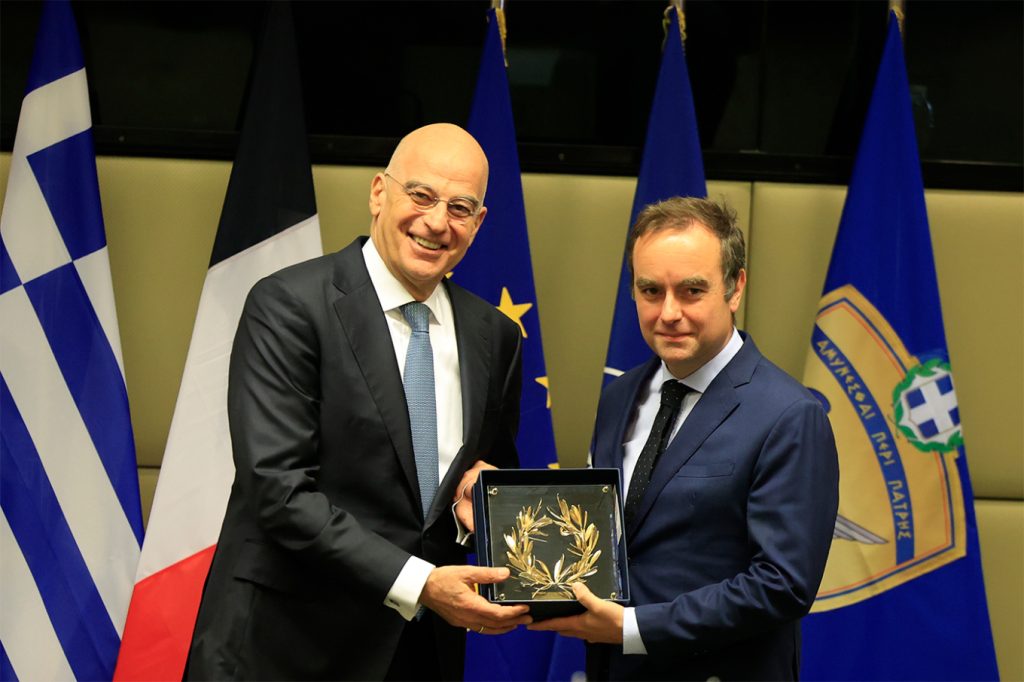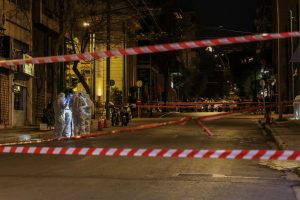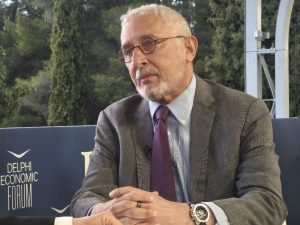The U.S. is set to bring a draft United Nations resolution calling for an immediate and sustained cease-fire in Gaza to a vote in the Security Council on Friday, a U.S. official said, raising the pressure on Israel to pause its five-month-old war with Hamas.
The draft resolution is coming up while Secretary of State Antony Blinken is in the region pressing for a cease-fire deal in hopes it will result in a surge in humanitarian aid into Gaza and a release of hostages held by Hamas, the U.S.-designated terrorist group whose bloody Oct. 7 attack on Israel sparked the war.
The Security Council debate is likely to be largely symbolic but represents the most significant public divergence between Washington and Israel since the war began.
The call for an immediate cease-fire in the latest U.S. draft is a shift away from Israel for the Biden administration, which has previously called for a cease-fire “as soon as practicable.”
But wording in the draft that mentions restarting operations in Gaza after a pause–which Israel has said it intends to do– could prompt a veto by Russia or other permanent members of the U.N. Security Council, diplomats said. The draft also repeats the past U.S. demand that any cease-fire be tied to the release of hostages from Hamas, as Israel has demanded.
It is rare for the U.S. to back—let alone put forward—a resolution that Israel would oppose at the U.N., a forum where Washington has traditionally used its Security Council veto to shield Israel from proposals that it opposes.
The resolution “will unequivocally support ongoing diplomatic efforts aimed at securing an immediate cease-fire in Gaza as part of a hostage deal,” Nathan Evans, a spokesman for the U.S. mission to the U.N. said, adding that “it is an opportunity for the Council to speak with one voice to support the diplomacy happening on the ground and pressure Hamas to accept the deal.”
Russia, which often votes contrary to the U.S., submitted its own cease-fire resolution in late October that condemned Hamas’ Oct. 7 attack and what it called Israel’s “indiscriminate attacks” on civilians in Gaza. That was vetoed by several nations, including the U.S.
“I think that would send a strong message, a strong signal,” Blinken said of the draft, in an interview with a Saudi government-owned broadcaster during his sixth visit to the Middle East since the Oct. 7 attacks.
The U.S. has blocked previous resolutions opposed by Israel calling for a humanitarian cease-fire in Gaza, including one in February because it didn’t call for the release of hostages. An alternative draft circulated by the U.S. at the time called for a temporary cease-fire.
In recent weeks, however, the death toll has risen and suffering in Gaza has grown , and Israel has threatened to invade Rafah , the southern Gaza city where more than a million people are sheltering. U.S. officials say they have come to see the U.N. as a means for pressuring Israel to pause fighting on humanitarian grounds.
Israel’s government, determined to eliminate Hamas from Gaza, says rooting the militants out of Rafah, their last stronghold, is central to its war aims. “If you leave four battalions in Rafah, you’ve lost the war, and Israel is not going to lose the war,” Israel’s Minister of Strategic Affairs Ron Dermer said Thursday.
“With or without the United States, we are not going to do it. We have no choice,” he said, speaking on Dan Senor’s podcast “Call Me Back.”
In an apparent response to the U.S. draft, Israel’s U.N. ambassador, Gilad Erdan , said in a post on the social-media site X, “There is only one formula for an immediate ceasefire – Hamas must release the hostages and turn themselves in. This is what the world should be demanding.”
A number of European Union countries, such as France, have for weeks been calling for an immediate cease-fire. However, a senior European diplomat said that EU countries were already working with Security Council partners on a different draft resolution in the expectation that Washington’s resolution would be blocked.
EU leaders meeting in Brussels released a statement Thursday calling for “an immediate humanitarian pause leading to a sustainable cease-fire,” as well as the release of hostages and easier access for humanitarian aid. It is the first time they have agreed to call for a cease-fire. The bloc has previously been split over the Gaza conflict, with some countries such as Germany and the Czech Republic strongly supporting Israel and others, such as Spain and Ireland, criticizing Israel’s military operation over the death toll in Gaza.
Though U.S. officials said its resolution was aimed at pressuring Hamas to accept a cease-fire, it sends at least as strong a signal to Israel, according to Richard Gowan , U.N. director at the International Crisis Group.
“The U.S. is now opening the door to the U.N. shaping the political framework for ending hostilities. That in and of itself may send a chill through Israeli decision makers,” Gowan added.
The draft U.N. resolution comes after other recent steps by President Biden and his allies to pressure the government of Israeli Prime Minister Benjamin Netanyahu to increase the flow of humanitarian aid into Gaza and to abandon plans for a ground invasion of Rafah.
Biden warned Netanyahu against the Rafah operation in a phone call on Monday, according to Jake Sullivan, Biden’s national security adviser. Biden earlier this month declared that he might withhold certain U.S. weapons deliveries unless Israel takes steps to protect civilians in the city, though Sullivan said Biden didn’t repeat that threat in his call with Netanyahu.
In a sign of the partisan wrangling over the U.S.-Israel relationship, House Speaker Mike Johnson (R., La.) said in an interview on CNBC that he plans to invite Netanyahu to speak to Congress about the Gaza war. The announcement followed a speech by Senate Majority Leader Chuck Schumer (D., N.Y.) last week in which he said Netanyahu “has lost his way” and called for new Israeli elections.
The toughened-up language comes ahead of a trip to Washington by senior Israeli officials including Dermer and the head of the National Security Council, Tzachi Hanegbi, for talks about alternatives to a ground invasion of Rafah.
“What we don’t want to see is a major ground operation because we don’t see how that can be done without doing terrible harm to civilians,” Blinken said in the interview Wednesday with Al Hadath television. “But at the same time, it is imperative to do something about Hamas, because Hamas has brought nothing but death and destruction to Palestinians,” Blinken said.
Israel’s campaign in the enclave has left nearly 32,000 people dead, mostly women and children, according to Palestinian health authorities. The figures don’t distinguish between civilians and combatants.
Israel and Hamas are considering a six-week cease-fire during which 40 hostages would be released in exchange for Palestinian prisoners in Israel. On Thursday, Netanyahu approved Israeli intelligence chief David Barnea to meet in Qatar with his counterparts from the U.S. and Egypt for a fresh session of cease-fire negotiations, according to Netanyahu’s office. Central Intelligence Agency chief William Burns is also scheduled to travel to Doha.
Mediators have described the current round of talks as the last chance to secure a truce to avert Israel’s impending plans for an offensive on Rafah, the only major population center in Gaza that Israeli troops haven’t entered. But Netanyahu on Tuesday said he had made it clear to Biden that he wouldn’t be dissuaded from invading the city, which borders Egypt.
Write to Stephen Kalin at stephen.kalin@wsj.com and Vivian Salama at vivian.salama@wsj.com



